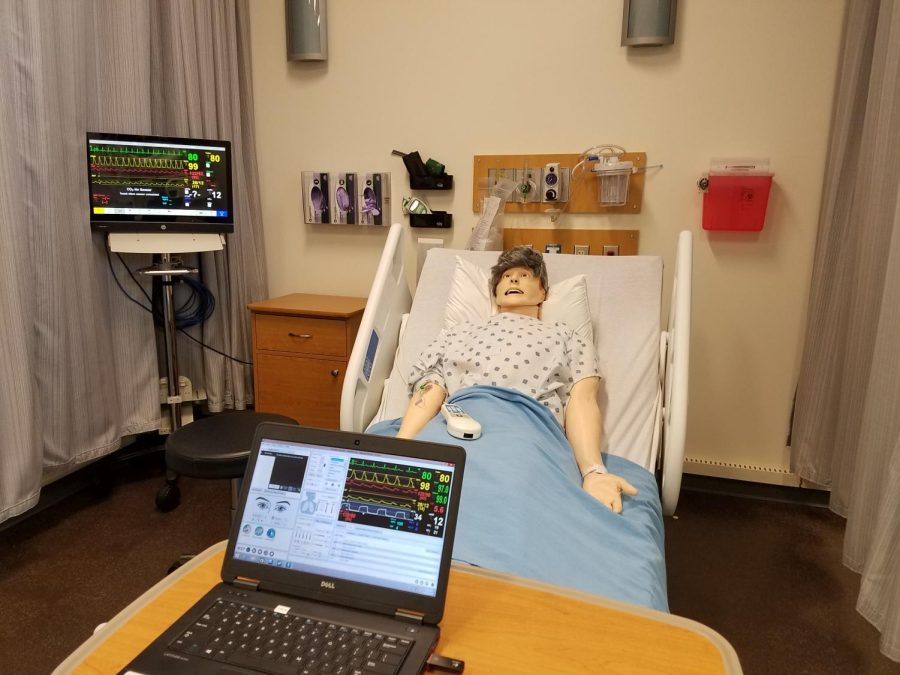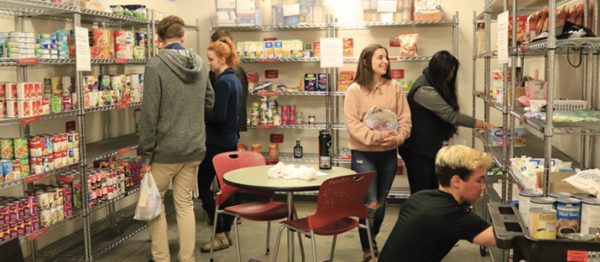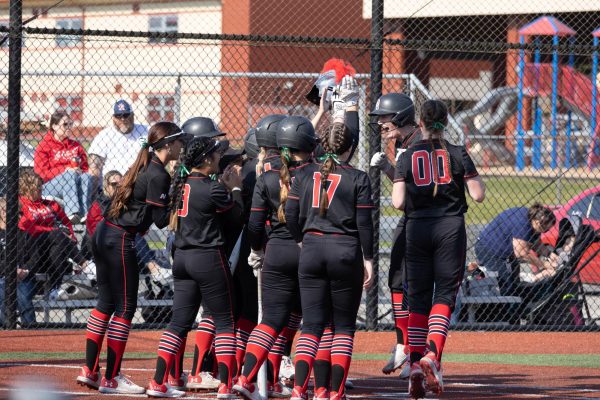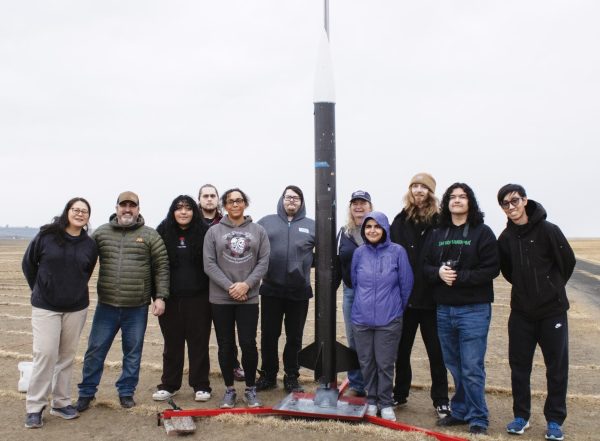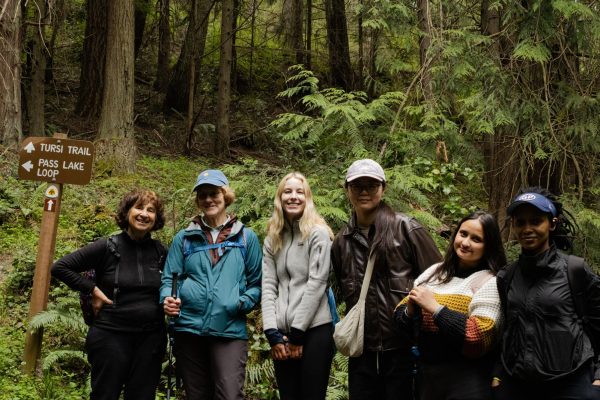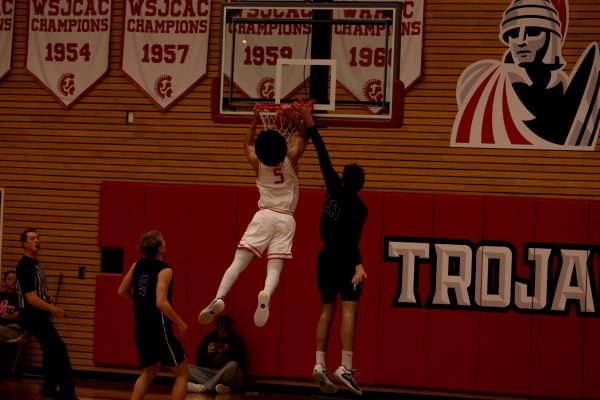The Immersive Learning Technology of EvCC’s Nursing Program
Simulation patient waiting for students to conduct their practices.
Deep in the heart of Liberty Hall’s student nursing facility, a team of medical learners are debriefed on their new patient in need of immediate attention. The roster of appointed student nurses enter a state-of-the-art hospital room, and are welcomed with the familiar scent of hand sanitizer and the unfamiliar voice of the patient wheezing out a cordial greeting to his heroes. Immediately the collegiate team goes to work, assessing vital signs and administering the appropriate medical care; calling on their skills honed over the course of several grueling quarters. However, this patient is markedly different from the average patient: he is made of rubber, and speaks through an intercom inside of his throat.
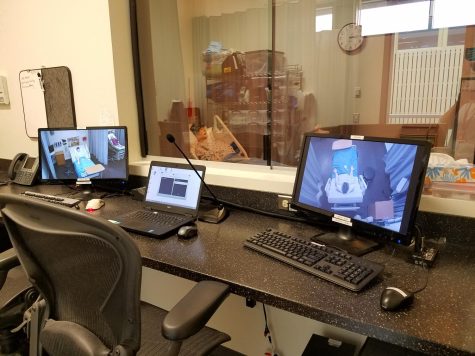
Overseeing the mock hospital room through a one-way mirror from a separate control room is nursing instructor Kirsti Boyd. She is speaking for the patient through a microphone, and as the students attempt to save the rubber man’s life, Boyd assesses their abilities in a low-stakes hospital simulation. “The point is for them to learn to work together as a team, to critically think, and to come to a solution,” she says.
EvCC’s Liberty Hall boasts an array of laboratory technology typically found in a standard hospital and is used to maximize a nursing student’s immersive experience. The largest laboratories include Pyxis medication administration systems, medical examination tables, and over a dozen rubber dummy patients. A proper introduction to the field just before practicing with real people.
According to the Washington State Board of Nursing, all nursing students are required to accumulate a certain amount of hours working in real-world clinical situations. For EvCC nursing students “You’re practicing your nursing skills on real people…we’re assessing, we’re doing treatments, we’re giving medications, all under the supervision of the instructor or licensed nurse,” Boyd says. Students would train at Providence Regional Medical Center in Everett or Swedish Edmonds Hospital to earn their clinical hours, but then COVID-19 hit.
In the spring semester of 2020, the nursing program student roster was full, but the mandated clinical practice time in the hospitals had to be cut so that nurses could respond to the pandemic. This meant the highly in-demand nursing students could not fulfill clinical hours and were in jeopardy of both delaying graduation time and their education indefinitely.
However, a solution was proposed: virtual simulation technology. This technology allows students to practice their nursing skills from home in a near- fully immersive experience, and is backed in viability by research conducted by the National Council of State Boards of Nursing (NCSBN). The simulations include various stressful real-world scenarios in which students must decide the appropriate course of action to treat patients and save a person’s life.
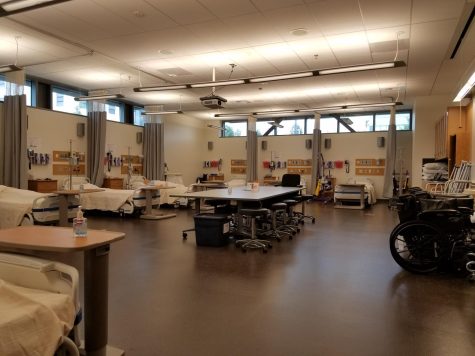
Jennifer Casperson, Healthcare simulation educator for the EvCC nursing program, successfully pushed the Washington State Board of Nursing for student engagement with virtual simulation technology to be accepted as clinical hours. Emergency release was put in place by the state that EvCC was able to use 100% simulation hours for the Spring of 2020 for clinical hours, and when students came back in the Fall of 2020, this was dropped to 50%. Boyd comments, “she really worked hard so we could keep our program open. Other schools delayed or didn’t even have classes in that spring, but we kept going.”
EvCC’s nursing program attributes much of its success to the immersive technology that empowers the student’s learning experience. Currently, virtual simulation programs are used regularly by the nursing students as part of their academic curriculum, and are updated to simulate the latest medical needs of the public. Thanks to these innovations in educational technology and the gumption of the staff members, the students could continue in spite of COVID-19. Boyd says “You either have to halt your nursing programs or you have to adjust.”
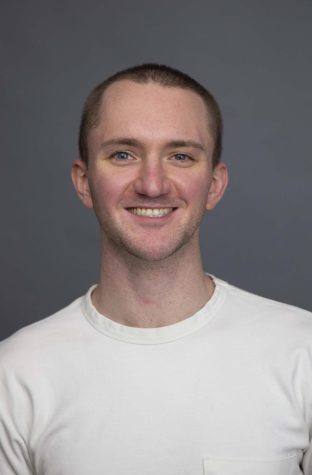
What interests you about journalism?
Journalism is the seeking of truth. It is the uncovering of information to tell the stories of the world and its...

